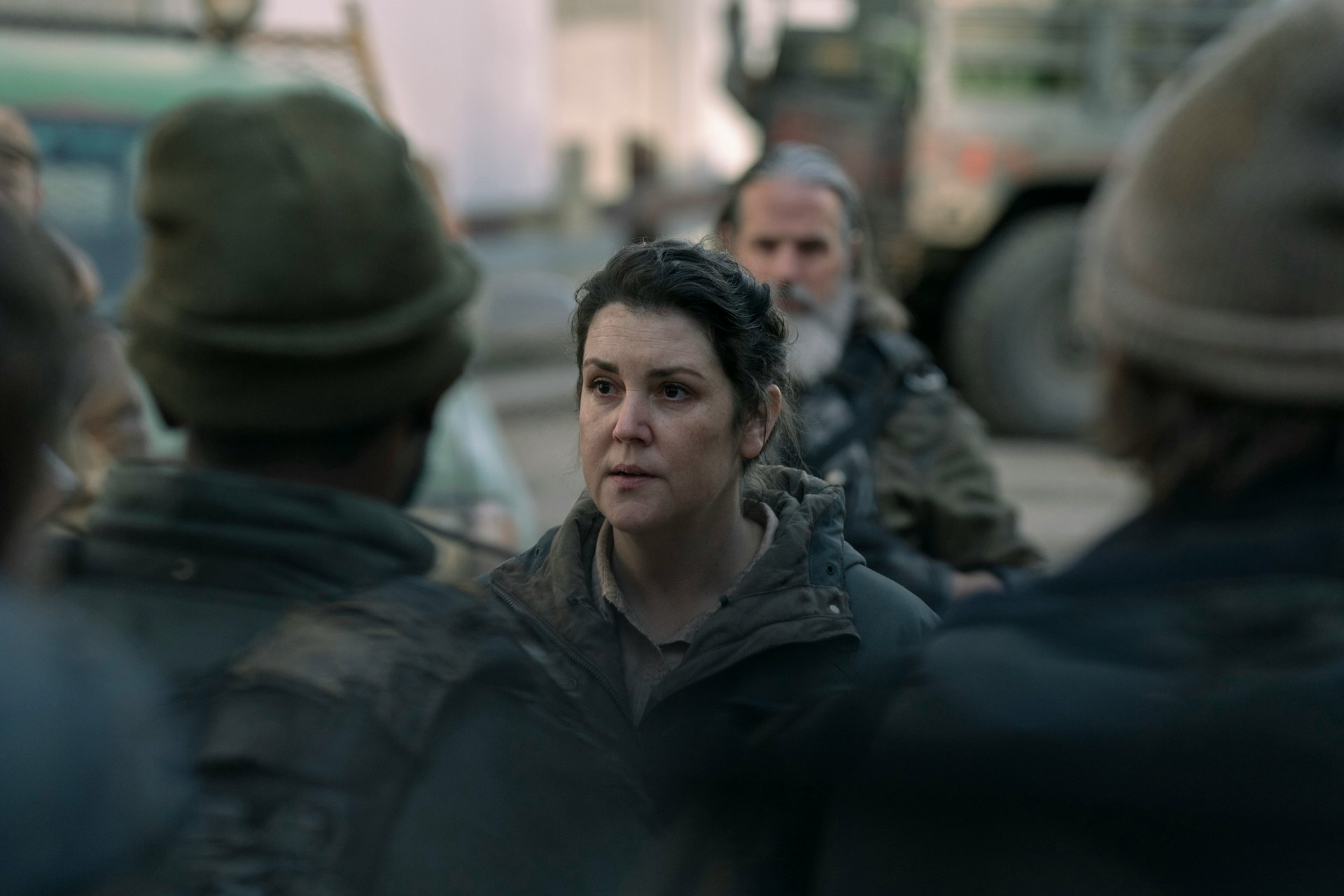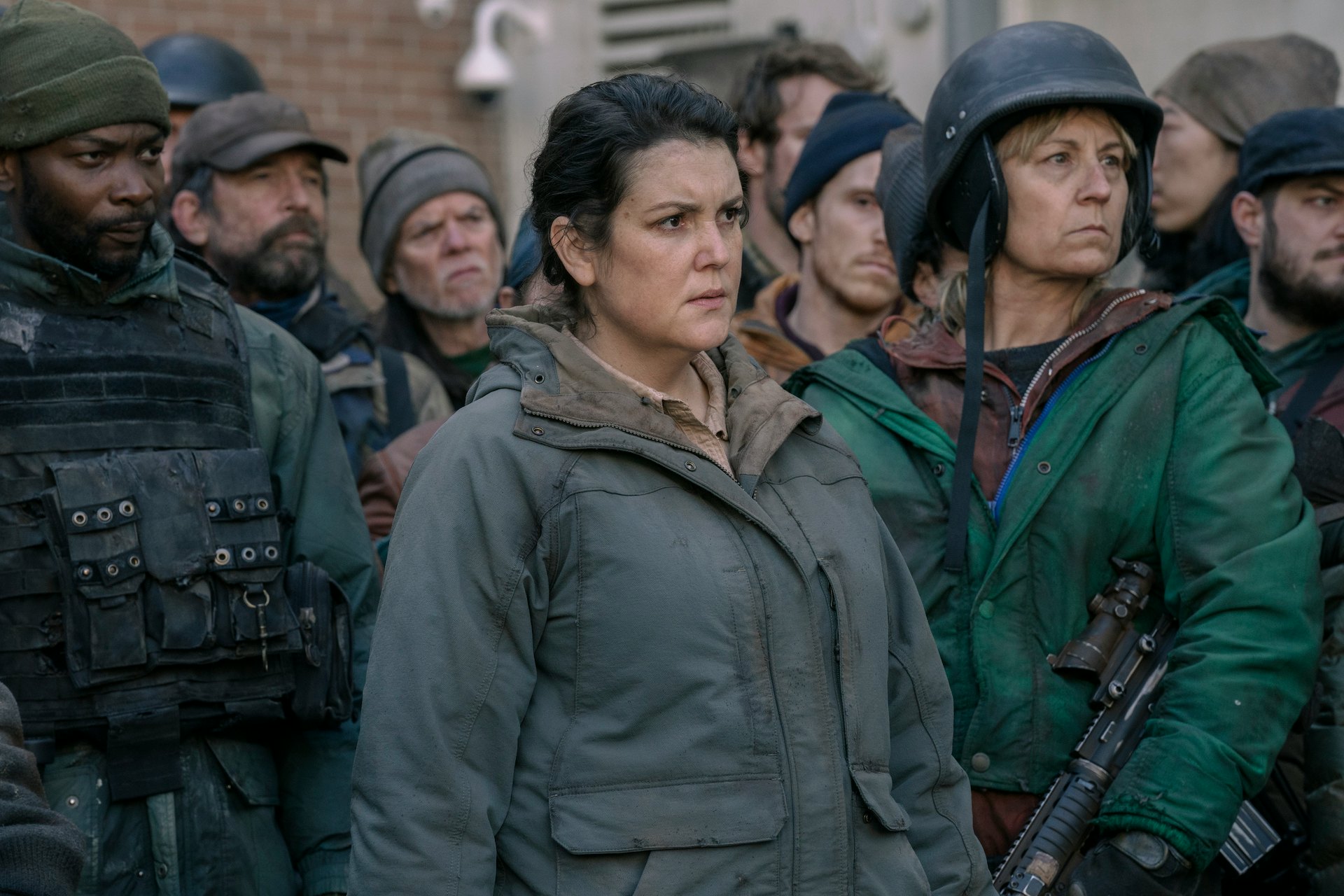
The Last of Us is incredibly close to the video game, so it’s no surprise that the biggest discussion points have been the few parts that have changed. In Episode 3, the brief appearance of gruff Bill was expanded into a heartfelt gay love story, which some fans disliked because of how Bill’s original demeanor and heartlessness affected Joel’s story.
In Episode 5, it becomes very clear the role of a heartless bastard wasn’t removed altogether, it was just transferred to a different, entirely new character: Kathleen.
Melanie Lynskey brings a devious sweetness to Kathleen, the leader of a post-revolution Kansas City QZ. The first time we see Kathleen, she interrogates her family doctor and then executes him on the spot without so much as a second thought. In Episode 5, we find out exactly why she’s hunting down a young man named Henry so fervently: he ratted out her brother to FEDRA, leading to his death.
Kathleen is willing do whatever and kill whoever in order to avenge her brother. She doesn’t care that Henry only did what he did in order to get life-saving medication for his brother — she only cares about her brother.

It’s this selfish love that Bill exhibited in the game, the passion to survive and protect that ended up driving Frank away in the first place. In the game, Bill represented a cautionary tale to Joel. As Bill says, “Once upon a time, I had somebody that I cared about. It was a partner. Somebody I had to look after, and in this world, that sort of shit's good for one thing: getting you killed."
In the end, that’s exactly what happens to Kathleen and her many followers: her need for revenge drove them to the suburb where Henry and Sam were trying to escape with Joel and Ellie. There, she goes on a doozy of a villainous monologue, suggesting that maybe some kids are just meant to die — a thematic throwback to Joel and his daughter, Sarah.
There was a lot of discourse surrounding Bill’s story and how his in-game counterpart showed Joel what happens when you love someone too much in this dangerous world. If only the fanbase knew then that the exact same lesson would be told with an entirely original character, maybe the uproar wouldn’t be as passionate.

Of course, part of the reason Kathleen did all these terrible deeds is also the same reason Henry turned the gun on himself after shooting a turned Sam: survivor’s guilt. It’s becoming a recurring theme for Joel, whether it’s the loss of Sarah, Tess, or Bill and Frank — he’s surviving, and that makes him feel less and less like he “deserves” to be alive.
The concept of fate and how we navigate a world full of loss is finally highlighted in this show. Why has fate chosen to keep Joel alive despite him losing everyone around him? Why has fate chosen Ellie to be mysteriously immune? We’ll hopefully explore these increasingly abstract concepts in the back half of the series.
The Last of Us is now streaming on HBO Max.







